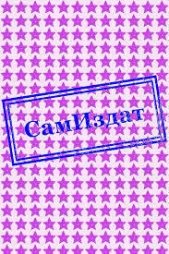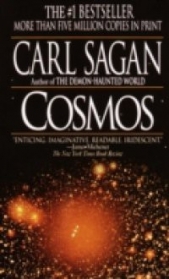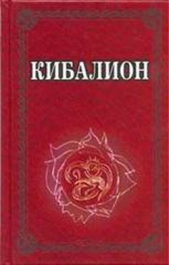Образ человека будущего, Том 7 (СИ)

Образ человека будущего, Том 7 (СИ) читать книгу онлайн
На основе предшествующих трех монографий Международное философско-космологическое общество начало выпуск научного журнала Future Human Image, в котором представлены современные мировые исследования образа человека будущего. Журнал охватывает области нейронаук, педагогики, философии образования и психологии. В данном выпуске представлены работы специалистов из США, России, Украины, Бразилии, Южной Африки, Испании, Казахстана. Журнал публикует исследования на русском, английском и украинском языках
Внимание! Книга может содержать контент только для совершеннолетних. Для несовершеннолетних чтение данного контента СТРОГО ЗАПРЕЩЕНО! Если в книге присутствует наличие пропаганды ЛГБТ и другого, запрещенного контента - просьба написать на почту [email protected] для удаления материала
Theoretical and methodological approaches of research
Modern philosophical discourse is characterized by the wide series of methodological approaches for discovering the complex educational problems of globalized world. The multidisciplinary, interdisciplinary and transdisciplinary methodological approaches demonstrate ones" heuristic potential at this context. Education is a social and cultural phenomenon that has productive connections with economic, spiritual and other spheres of human life. Thus, approaches of philosophy of education sometimes can be productively augmented by the methods or concepts of other sciences.
We understand that using of methodological approaches of other sciences should be predicted by the proper theoretical estimation and substantiation. The same position demonstrates William Spady, saying that using interdisciplinary approaches scientists laments the lack of conceptual clarity, methodological rigor, complexity of design, breadth, and analytic sophistication that characterizes most existing work, their recommendations regarding new and more thorough research approaches also lack a definite theoretical basis [Spady, 1970: 64].
At the research we stand on position that educational problematic can be fruitfully discovered using approaches of not only similar sciences (sociology, history, pedagogy and so on). The analysis of contemporary researches at the sphere of higher education demonstrated that researchers heuristically used the approaches of geography, mathematics and other disciplines to enrich their research potential. Some scientists stand on position that metaphor can be a productive research instrument at the context of linguistic turn at philosophy of the 20th century. Metaphor starts being comprehend not only as a literature phenomenon or as instrument for everyday language complement. It is an effective instrument for understanding the ontological essence of the processes of contemporary world. The special place at this context has educational sphere of human being.
As an example of productive (sometimes metaphoric) using of the potential of other sciences can be concept of "axiological palette". This concept productively complement the term "axiological system" when idea of system (hierarchy, unity and so on) does not work. In addition, we can find a lot of researches where authors used the concept of "education matrix" [Jones & Oleksiyenko, 2011]. The postmodern discourse of philosophy of education actively uses "risoma" term, which was borrowed from biology. The next demonstrative example is research of Serhii Terepyshchyi "Modern Education Landscapes" [Terepyshchyi, 2016] where author performs the analysis of education landscape concept through the prism of transdisciplinary interrelationship of natural science knowledge as well as humanitarian one.
According to this logic, we think that processes of universities division at Ukrainian social and cultural space can be reviewed using the metaphors of cell biology. At the research, we
130 Future Human Image. Volume 7, 2017
Divided Universities: The Postcolonial Experience of Contemporary Ukrainian Higher Education by Denys Svyrydenko
attempt to use the biological concepts trying to pierce the logic of the mentioned processes. For example, trying to check possibility to comprehend the universities division as cloning, mitosis and other metaphors of cell biology.
The cloning metaphor has two following biological notions: 1) a cell, cell product, or organism that is genetically identical to the unit or individual from which it was derived; 2) a population of identical units, cells, or individuals that derive from the same ancestral line
[Cloning, 2017]. According to this logic, evacuated universities are only the "clones" of the "original" ones stayed on the territory of DPR, LNR and Crimea.
For demonstrating of methodological potential of mitosis metaphor, we use the following definition: mitosis is a process where a single cell divides resulting in generally two identical cells, each containing the same number of chromosomes and genetic content as that of the original cell [Mitosis]. According to this logic, both universities seem like equal.
The natural science metaphors look heuristic being strengthened by the ethical component. We stand on position that there is a need to evaluate the fact of idea of university correspondence for both (evacuated and "twin") universities. These steps will be performed at the next parts of the article and help to make conclusion depending the perspectives of the current situation development.
One of the methodological orientations of the research is comprehension of social and cultural situation in Ukraine through the idea of postcolonialism. We want to underline, that approaches of postcolonial studies could be fruitful for understanding the special social and cultural landscape of modern Ukraine. The postcolonial (post-totalitarian, post-Soviet) status of Ukraine is preciously proven on the modern philosophical discourse.
Ukrainian higher education also feels the influence of the mentiones phenomenon: Ukrainian socio-cultural space can be considered through the optic of mixing the features of postcolonial (imperial - Russian, Austro-Hungarian), post-totalitarian (Soviet), national (Ukrainian), modern (European / Western) and global (world high standards) paradigms of higher education
[Gomilko at el, 2016: 178]. The tragic facts of Revolution of Dignity, military activity at the East of Ukraine, annexation of Crimea demonstrates that Ukraine can be reviewed through the postcolonial methodological optics. Ukrainian situation is very similar to the following ideas of Fazal Rivzi and other authors: "Independence from colonialism does not mean liberation, and that "national consciousness" often fails to achieve freedom because its aspirations are primarily those of the colonized bourgeoisie, who simply replace the colonial rule with their own form of dominance, surveillance and coercion over the vast majority of the people, often using the same vocabulary of power... Even after independence, the colonial subjects remain colonized internally, psychologically" [Rivzi at el, 2006: 251].
Social and cultural prerequisites of universities division processes in Ukraine
The processes of political modernization after the fall of Soviet Union have an extremely active phase since 2013. This year is an edge point at the chronology of Ukrainian modernization activity. Viktor Yanukovych, former president of Ukraine, tried to change the modernization direction radically form European one and initiate Russia-oriented political activity. The Yanukovych regime is also known as an organized system with highest level of corruption.
The series of political steps of this politician initiated the protest activity called Revolution of Dignity. Yuriy Shveda describes the logic of revolution activity and one"s preconditions in
Future Human Image. Volume 7, 2017 131
Divided Universities: The Postcolonial Experience of Contemporary Ukrainian Higher Education by Denys Svyrydenko























